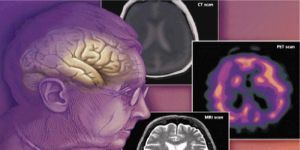Article
Liver Abnormalities Lead Lilly to Halt Alzheimer's Drug Development
Author(s):
Nearly two years after Eli Lilly and Co. halted a pair of clinical trials on its gamma-secretase inhibitor for Alzheimer's disease following the candidate's failure to demonstrate results superior to placebo, the drug maker has terminated a phase 2 study of its investigational beta-secretase (BACE) inhibitor for the same neurological condition - this time citing liver abnormalities.

Nearly two years after Eli Lilly and Co. halted a pair of clinical trials on its gamma-secretase inhibitor for Alzheimer’s disease, following the candidate’s failure to demonstrate results superior to placebo, the drug maker has terminated a phase 2 study of its investigational beta-secretase (BACE) inhibitor for the same neurological condition — this time citing liver abnormalities.
In a statement announcing the pharmaceutical firm’s decision to halt its clinical program for LY2886721, an experimental once-daily treatment to slow the progression of dementia, Jan M. Lundberg, PhD, president of Lilly’s research arm and executive vice president of science and technology, noted that “discovering and developing medicines for devastating diseases like Alzheimer’s is fraught with many challenges.”
In addition to the abnormal liver biochemical tests discovered during the BACE inhibitor’s phase 2 clinical study, those challenges include Lilly’s announcement in August 2010 that early results from two phase 3 IDENTITY trials of semagacestat showed the gamma-secretase inhibitor “did not slow disease progression and was associated with worsening of clinical measures of cognition and the ability to perform activities of daily living”, according to a company press release.Despite the setbacks dealt to the drug maker’s neuroscience development pipeline, Lundberg said Lilly’s “25-year commitment to bringing medicines to the millions of Alzheimer's disease patients who are waiting will not wane.”
Lilly said information gathered from the phase 2 study has led it to believe the abnormal liver function observed in patients treated with LY2886721 wasn’t related to the BACE mechanism, so the company “continues to be interested in developing BACE inhibitors for the benefit of patients with Alzheimer’s disease.”
Though Lilly has yet to determine the next steps for LY2886721’s clinical development program, the drug maker currently expresses its ongoing interest in treatments for neurological diseases and disorders such as dementia, depression, and bipolar disorder through eight potential new treatments — two of which are currently in phase 3 development.





